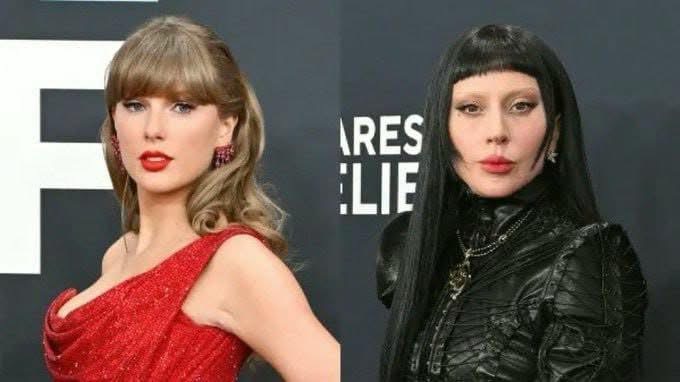CELEBRITY
BREAKING: Taylor Swift and Lady Gaga Have Refused to Sing and Dance at Future White House Events If Called

In a stunning turn that has sent shockwaves through both the music industry and the political world, global superstars Taylor Swift and Lady Gaga have reportedly made it clear that they will not be performing at future White House events, regardless of the invitation. The announcement, which comes at a time when celebrity influence is at an all-time high, has already ignited intense speculation about what drove two of the most iconic figures in modern music to take such a bold and unprecedented stand.
For years, Swift and Gaga have been staples of the American cultural landscape, not only as chart-topping artists but also as performers who embody the spirit of spectacle, unity, and influence. From Super Bowl stages to worldwide tours, their presence has always been linked to history-making moments. The idea of them gracing a White House stage seemed almost natural. Yet, their refusal to sing or even dance at any official presidential event signals a decisive break, a declaration that resonates far beyond the borders of entertainment.
Insiders close to both artists suggest that the decision is rooted in a growing discomfort with how entertainers are often used as political symbols, rather than as independent voices. Taylor Swift, who in recent years has become increasingly outspoken about issues of equality, justice, and artistic autonomy, has reportedly expressed frustration at being expected to perform as a gesture of unity while larger societal tensions remain unaddressed. Lady Gaga, equally known for her activism and her fierce defense of individuality, is said to share similar sentiments, believing that music should not be reduced to a political prop. Together, their decision appears to be a carefully calculated stand — not against one administration, but against the broader practice of using artists as ceremonial performers for political theater.
The refusal is already being read as a cultural earthquake. Political commentators are scrambling to interpret what this means for the relationship between Washington and Hollywood. Some believe it’s a wake-up call for leaders who have long relied on celebrity star power to soften their image and connect with younger audiences. Others argue that Swift and Gaga’s stance could spark a chain reaction, emboldening other artists to reject White House invitations in order to preserve their independence and avoid being seen as aligning with agendas they don’t fully support.
Fans, meanwhile, are divided. Swift’s loyal base, known for their unwavering devotion, has taken to social media to applaud her courage, framing it as yet another example of the pop star’s refusal to compromise her principles. Gaga’s “Little Monsters” have echoed similar sentiments, pointing out that their idol has always challenged the status quo, and this moment feels like a natural extension of her lifelong mission to fight for authenticity and truth. Yet, not everyone is cheering. Some critics accuse the singers of overstepping, suggesting that refusing to perform at the White House is an unnecessary act of rebellion that risks alienating the very audience they claim to empower.
What makes this even more dramatic is the timing. Both artists are at the height of their power — Swift with her record-shattering tours and Gaga with her expanding influence in both music and film. Their voices carry weight not just as entertainers but as cultural leaders. Their refusal, therefore, is not an act of silence but a thunderous statement that even the most prestigious stage in America cannot compel them to move to a beat they do not believe in.
The White House itself has yet to respond, but already the debate is raging. What happens when the biggest stars in the world decide they will not be part of a political performance, no matter how historic the setting? Does it strip events of their glamour, or does it force leaders to confront the fact that true artistry cannot be commanded? In the end, this moment may mark a turning point, not just in the relationship between politics and music, but in the very idea of what it means to be an artist in the public eye.
For now, Taylor Swift and Lady Gaga’s decision stands as a defiant reminder: the most powerful stages are not always found in ornate halls or official ceremonies, but in the hearts of artists who know when to say no. And with two of the biggest names in the world refusing to dance to anyone else’s tune, the reverberations are bound to be felt for a long time to come.




















